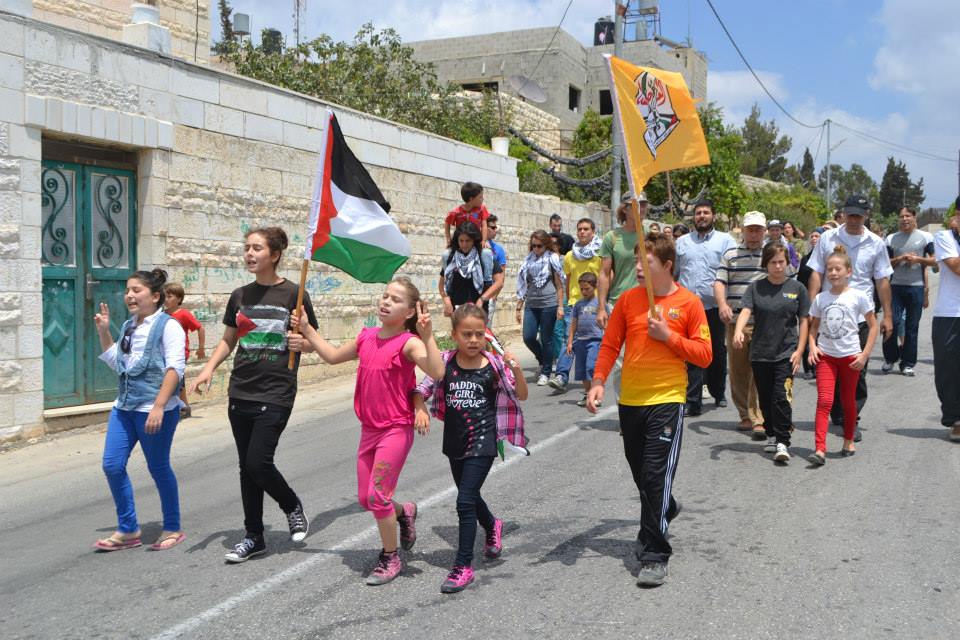Category: Reports
-
Video- Kafr Qaddum demonstration against the Prawer Plan violently repressed by the Israeli army
20th July 2013 | International Women’s Peace Service | Kafr Qaddum, Occupied Palestine On Friday 19 July, the residents of Kafr Qaddum gathered for a demonstration against the Prawer Plan, an Israeli government plan that will ethnically cleanse the occupied al-Naqab desert. Protesters were violently attacked by Israeli soldiers who repeatedly raided the village firing…
-
Photo essay: Israeli activist injured with a rubber-coated steel bullet at Nabi Saleh demonstration
19th July 2013 | International Solidarity Movement, Ramallah Team | Nabi Saleh, Occupied Palestine Today, around fifty Palestinians together with Israeli and international activists marched from the centre of Nabi Saleh down the main road towards the stolen spring. Protesters made barricades of burning tyres to prevent Israeli forces from raiding the village. Soon after…
-
Palestinian shepherd assaulted by settlers in South Hebron Hills
19th July 2013 | International Solidarity Movement, Khalil Team | Mirkez, Occupied Palestine On the 16th of July, Omar Jabril, 28, was pasturing his sheep in the surroundings of Mirkez, in the middle of firing zone 918, when three settlers assaulted him, injuring him severely. Some villagers witnessed broken teeth and a large amount of…

